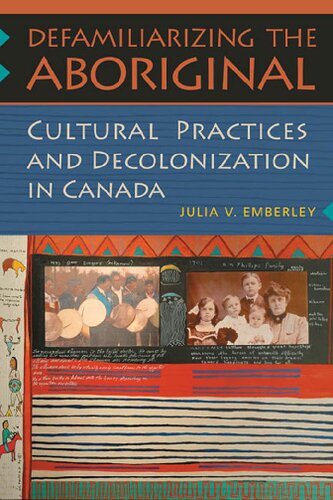

Most ebook files are in PDF format, so you can easily read them using various software such as Foxit Reader or directly on the Google Chrome browser.
Some ebook files are released by publishers in other formats such as .awz, .mobi, .epub, .fb2, etc. You may need to install specific software to read these formats on mobile/PC, such as Calibre.
Please read the tutorial at this link: https://ebookbell.com/faq
We offer FREE conversion to the popular formats you request; however, this may take some time. Therefore, right after payment, please email us, and we will try to provide the service as quickly as possible.
For some exceptional file formats or broken links (if any), please refrain from opening any disputes. Instead, email us first, and we will try to assist within a maximum of 6 hours.
EbookBell Team

4.1
90 reviewsFrom the Canadian Indian Act to Freuds Totem and Taboo to films such as Nanook of the North, all manner of cultural artefacts were used to create a distinction between savagery and civilization. In Defamiliarizing the Aboriginal, Julia V. Emberley examines the historical production of aboriginality in colonial cultural practices and its effects in shaping the everyday lives of indigenous women, youth, and children.
Adopting a materialist-semiotic approach, Emberley explores the ways in which representational technologies film, photography, and print culture, including legal documents and literature were crucial to British colonial practices. Many indigenous scholars, writers, and artists are, however, confounding these practices by deploying aboriginality as a complex and enabling sign of social, cultural, and political transformation. Emberley gives due attention to this important work, studying a wide range of topics, including race, place, and motherhood, primitivism and violence, and sexuality and global political kinships. Because of Emberleys multidisciplinary approach, Defamiliarizing the Aboriginal will be of interest to scholars and students of cultural studies, indigenous studies, womens studies, postcolonial and colonial studies, literature, and film.